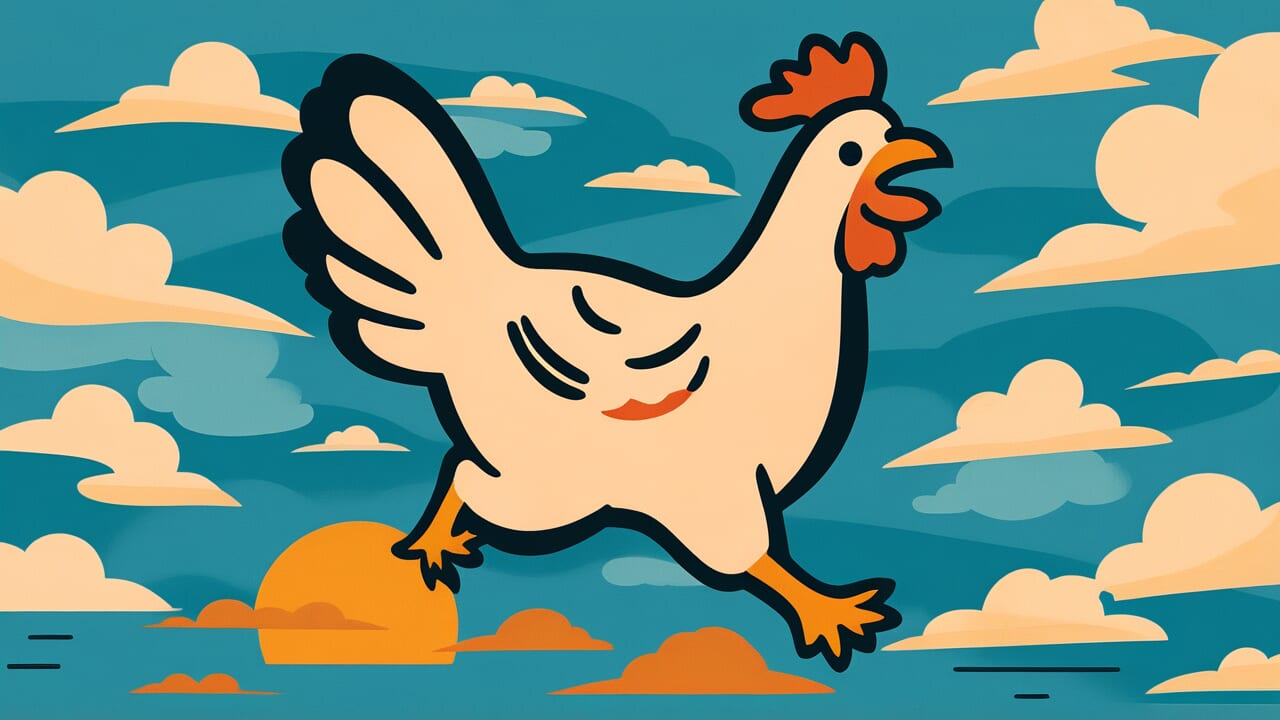How to Read “Chickens and dogs bark at the clouds”
Keiken kumo ni hoyuru
Meaning of “Chickens and dogs bark at the clouds”
“Chickens and dogs bark at the clouds” describes a situation where even ordinary people are making a fuss about a major incident.
It also refers to a state where the entire society is in confusion.
When even regular people who usually live quietly get anxious and surprised, it means something truly serious has happened.
The situation affects not just political leaders or the privileged class, but every layer of society.
This proverb is used because it emphasizes the scope and severity of an event better than simply saying “major incident.”
The metaphor of even the most familiar creatures like chickens and dogs making noise conveys that no one can remain uninvolved.
It shows a confusion that engulfs the entire society.
Today, we understand this phrase as expressing the seriousness and widespread impact of large-scale political turmoil, social unrest, or incidents that shake an entire nation.
Origin and Etymology
Clear documentary records about the origin of this proverb are limited.
However, we can make interesting observations from the structure of the phrase.
“Keiken” (chickens and dogs) refers to the most familiar domestic animals.
In Chinese classics, the sounds of chickens and dogs were often used to express peaceful villages.
In other words, chickens and dogs symbolized the everyday life of common people.
The expression “bark at the clouds” is significant.
Chickens and dogs that normally cry on the ground barking at the clouds indicates an unusual situation.
It means something strange enough to make them look up at the sky and make a fuss has occurred.
This expression probably originated from observing chickens and dogs in normally quiet villages crying anxiously during major natural disasters or wars.
When not just high-ranking people but even the most common creatures like domestic animals make noise, it means a major incident is shaking the entire world.
After being transmitted to Japan, this meaning of “confusion reaching even the common people level” was inherited.
It came to be used as a proverb expressing social chaos and major incidents.
Usage Examples
- Rumors of a change in government have created a situation like chickens and dogs bark at the clouds
- The sudden bankruptcy of a major company has put business partners in a state where chickens and dogs bark at the clouds
Universal Wisdom
The universal truth shown by “Chickens and dogs bark at the clouds” is that major social chaos is never just a problem for some people.
Looking back at history, major incidents that shake society always affect even those in the weakest positions.
Events at the center of power eventually spread like ripples, threatening the lives of common people in the most distant places.
This proverb has been passed down for so long because it shows that human society is fundamentally a network of interdependence.
No matter how far away an event occurs, no matter how unrelated to you an incident seems, it may ultimately affect each of our lives.
Also, this proverb values the perspective of “common people’s anxiety.”
History books record the movements of those in power, but the fears and anxieties of nameless people who actually lived through those times reflect the true state of society.
Like chickens and dogs making noise, the wordless unrest of the masses tells us about the real crisis of the times.
This is universal wisdom that the measure of a healthy society lies in the sense of security of those in the weakest positions.
When AI Hears This
The act of a dog barking is physically identical, yet on the ground it’s dismissed as “how noisy.”
But the moment it moves to an extraordinary place like above the clouds, it becomes an object of surprise: “Why is a dog here?”
This cognitive reversal shows that our brains prioritize processing the context in which information is placed rather than the information itself.
In cognitive science, the phenomenon where judgment changes based on how the same fact is presented is called the framing effect.
For example, “90% success rate” and “10% failure rate” are mathematically identical, but people perceive the former positively and the latter negatively.
The dog in this proverb is similar—an existence ignored in the “normal framework” of the ground becomes the center of attention when placed in the “abnormal framework” of the clouds.
In other words, though the dog’s behavior hasn’t changed, the evaluation changes 180 degrees.
What’s more interesting is that we fall into the illusion that “the dog has become special.”
This is a cognitive bias called attribution error, which refers to the tendency to seek the cause of change in the object itself.
In reality, only the observer’s position has changed, yet we feel as if the dog itself has changed.
This double cognitive trap gets at the essence of the phenomenon where our view of people changes when their status or environment changes.
Lessons for Today
What this proverb teaches us today is that we cannot remain indifferent to major events happening in society.
Political and economic movements that seem unrelated to you directly may eventually affect your life.
That’s why it’s important to take interest in what’s happening in the world, gather information, and think for yourself.
At the same time, this proverb also asks us to stay calm.
Like chickens and dogs making noise, when confusion surrounds us, we need the ability to avoid being swept up in panic and discern what the truly important problems are.
In modern times when information spreads instantly on social media, anxiety and fear can also expand in a chain reaction.
Most importantly, social stability is built on each person’s sense of security.
If you yourself feel anxious, it may be reflecting a problem in society as a whole.
While valuing that feeling, don’t lose hope and take action on what you can do.
That is the wisdom for surviving turbulent times.



Comments